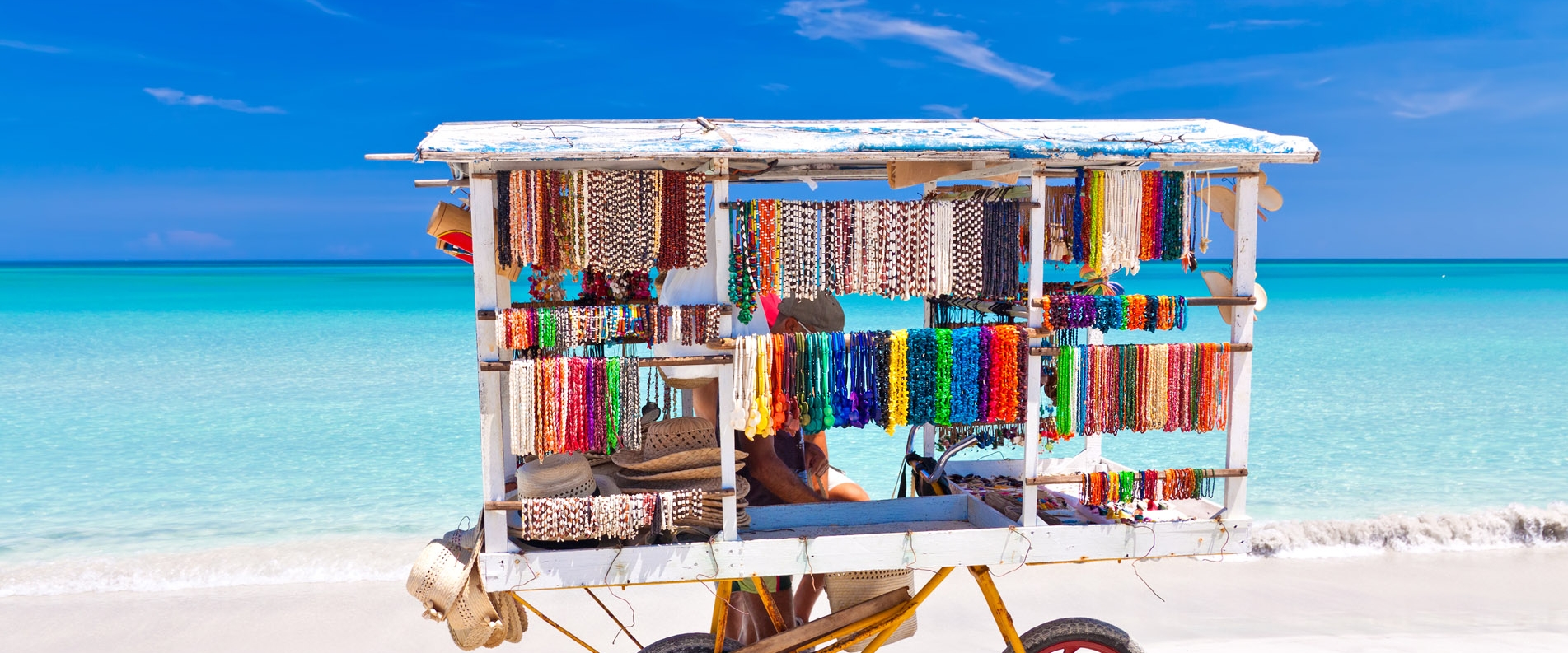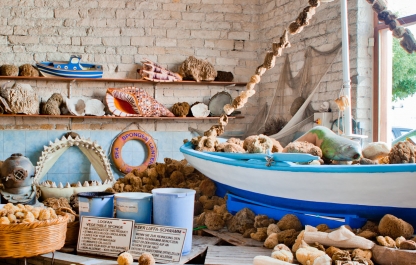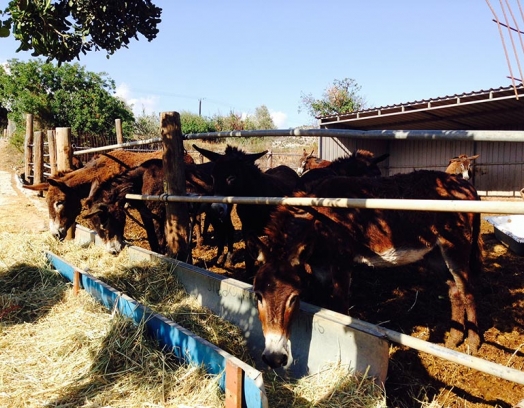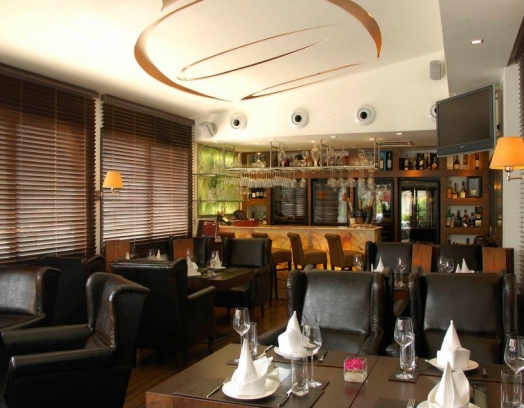What makes the perfect souvenir from Cyprus? Which gifts are worth bringing back, and where can you find them? Whether you’re looking for a taste of the island or a cultural keepsake, Cyprus offers a variety of memorable treasures. From wine and olive oil to handcrafted jewelry, embroidery, and religious icons, here’s a detailed guide to the best souvenirs that will keep your holiday memories alive.
Olive oil and olives
Olive oil production in Cyprus is deeply intertwined with the island’s history, economy, and culture. The olive branch, a universal symbol of peace, is even featured on the country’s coat of arms.
Historical records suggest that olive cultivation was widespread in Cyprus as early as the 12th century. The island’s wild olive trees are known for their resilience, with some living for over 2,500 years.
Today, Cyprus ranks among the top 20 olive-producing nations, with over 2.5 million olive trees yielding more than 10,000 tons of olives annually.
One of the island’s oldest olive trees, estimated to be over 700 years old and spanning 10 meters in width, can be found between the villages of Agia Marina and Xyliatos.
While large-scale factories produce high-quality olive oil, many visitors prefer to buy from local olive mills, where fresh, extra virgin oil can be bottled on-site. These mills often offer tastings featuring different oil varieties, home-baked bread, local coffee, and even wine. The best time to purchase freshly pressed oil is during the harvest season (October to March).
If you prefer shopping in urban centers like Limassol, always check the label before purchasing. The highest quality oil is marked as extra virgin and obtained solely by mechanical means or first cold pressing. Bottles labeled simply as "olive oil" have usually undergone refining, which removes some of their natural benefits.
What about the olives themselves? Cyprus is home to several varieties, with Koroneiki being one of the most famous—these small olives are often pickled. Other popular types include Konservolea, Kalamata, Megaritiki, and Kolovi. Olives are commonly sold stuffed, whole, sliced, or chopped, and for those planning to take them home, vacuum-sealed packaging is recommended to preserve freshness.
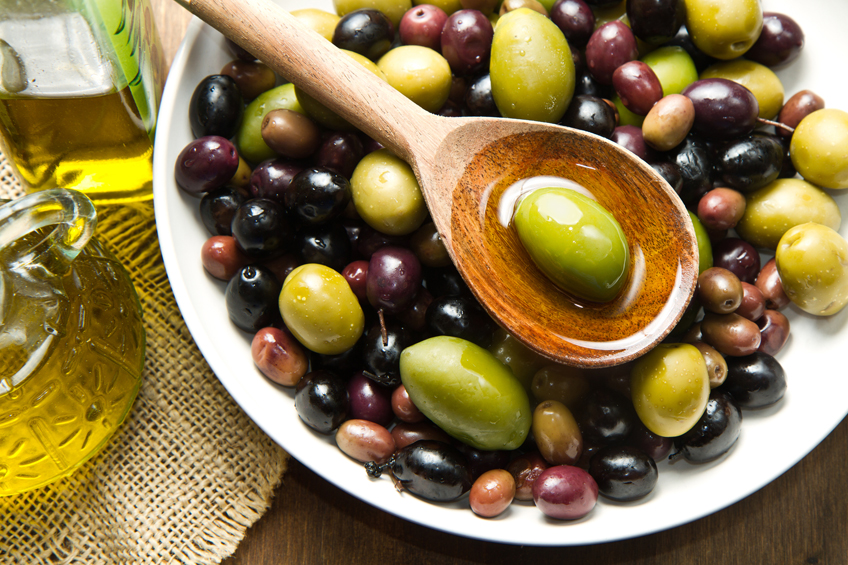
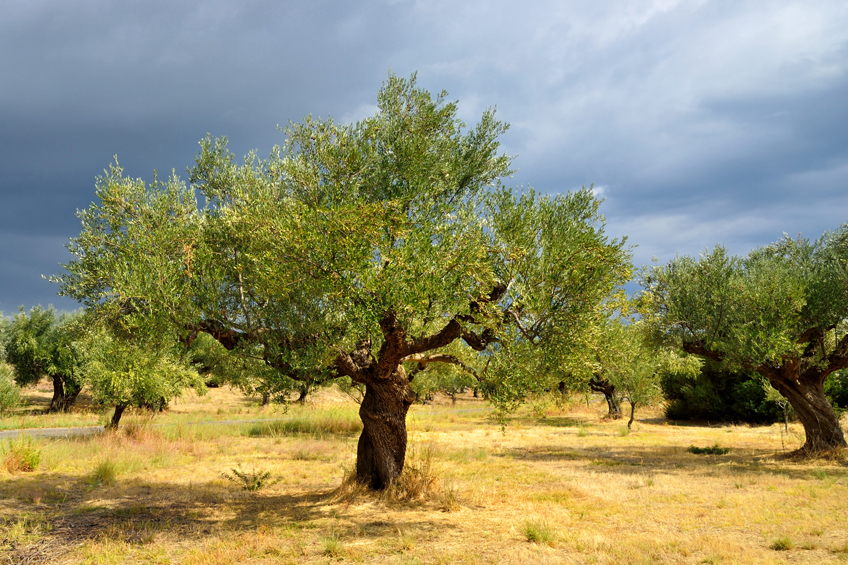
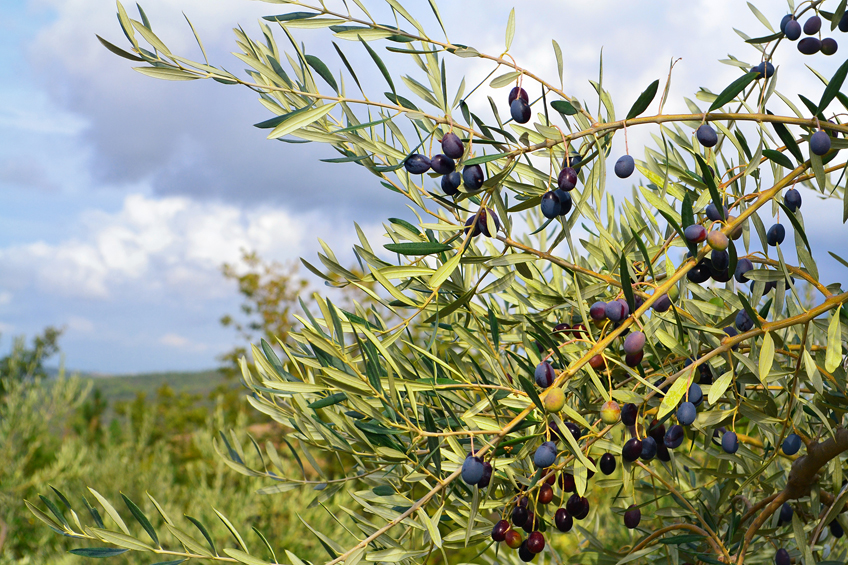
Cyprus Wine
For many travelers, Cypriot wine is an essential part of the island experience, making it a top choice for a souvenir. Bringing home a bottle (or two) is a great way to relive your time in Cyprus or share it with loved ones.
The island’s most famous winemaking regions are located around Limassol and Paphos, where indigenous grape varieties such as Xynisteri, Maratheftiko, Muscat, and Mavro thrive.
The most legendary Cypriot wine is Commandaria, a rich, sweet dessert wine with a history dating back thousands of years. Even the ancient Greek poet Hesiod wrote about this "Cypriot Manna," highlighting its sacred significance. The name "Commandaria" originates from the medieval period when the Knights Templar and the Knights Hospitaller produced this wine for export to Europe.
Another well-known local drink is Zivania, a strong distilled spirit with an alcohol content of around 45%. Made from grape pomace and dry local wines, it’s a distinctive Cypriot specialty.
For a deeper dive into Cypriot winemaking, visit one of the island’s traditional wine villages, where small family-run wineries welcome visitors with tastings and tours. Some of the best-known wine-producing villages include Omodos, Vouni, Koilani, Mandria, Panagia, and Arsos. These charming villages also feature museums dedicated to Cyprus’ rich viticulture.
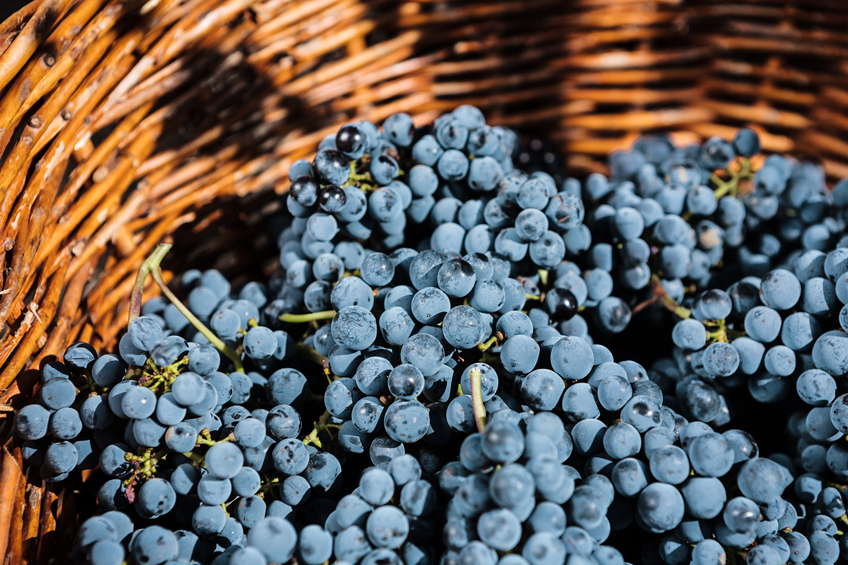
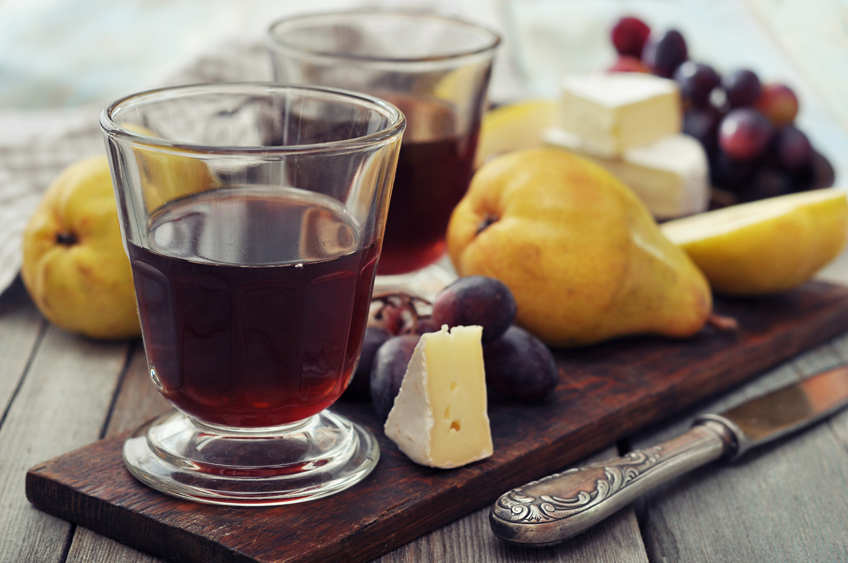

Carob Products: A Unique Cypriot Delight
The carob tree, an evergreen species from the pea family, has thrived in the Mediterranean for centuries. In Cyprus, its significance is so great that locals respectfully call it "black gold."
Reaching heights of 6 to 12 meters, the carob tree produces long, dried pods that have been valued for both culinary and medicinal purposes.
An intriguing historical fact: in ancient times, carob seeds were used as a unit of weight. Each seed weighs precisely 200 milligrams—equivalent to a carat, still used in the jewelry industry today.
One of the most popular carob-based products is a cocoa alternative without caffeine. This drink retains a rich flavor while offering a healthier option compared to coffee, making it suitable for people of all ages.
Other carob-derived goods, widely available in health-food stores and supermarkets across Cyprus, include carob bars (which resemble chocolate in taste but are considered more nutritious) and a sweet syrup frequently used in desserts and traditional cooking.
Carob is prized for its health benefits, offering immune-boosting properties and being well-suited for diabetics and allergy sufferers. These distinctive and nutritious products make for excellent souvenirs, especially for those committed to a healthy lifestyle.
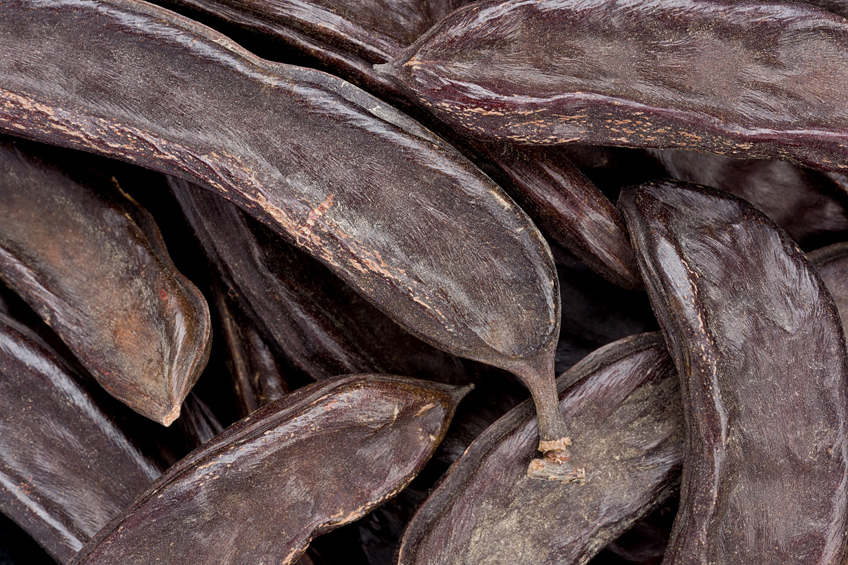
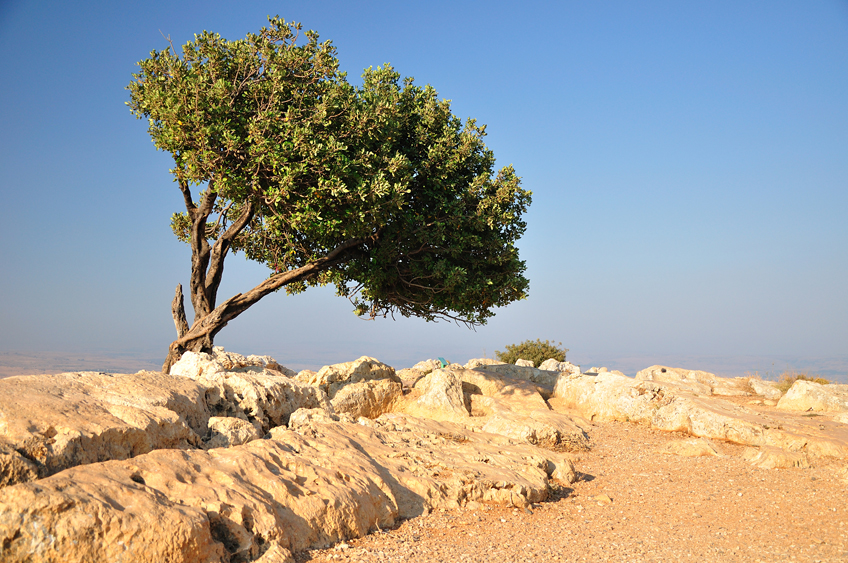
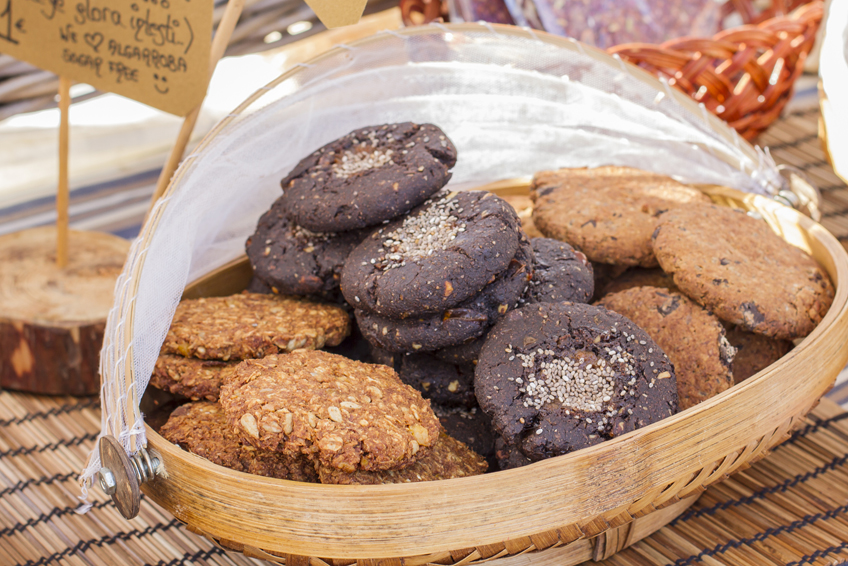
Traditional Sweets and Jams: A Taste of Cyprus
Sweets play an important role in Cypriot culture. Throughout the year, traditional fruit jams can be found on nearly every household table, while special treats, such as walnut jam, make for a unique and memorable gift from the island.
Among the most popular local sweets are paluze (a grape syrup pudding), churchkhela (nuts coated in thickened grape juice), traditional pastries filled with anari cheese and cinnamon, semolina cakes, and the famous muhallebi—a Turkish dessert made with cornflour, rose water, sugar, and ice cream. Additionally, visitors can savor baklava and rahat lokum, both of which are widely enjoyed across Cyprus.
A noteworthy recommendation is Cypriot honey, well known for its exceptional nutritional and medicinal qualities.
These sweet delights are easy to find in local markets, small specialty stores, and shopping malls throughout the island.
Halloumi Cheese: The Island’s Signature Flavor
Halloumi, Cyprus' most famous cheese, is cherished both locally and internationally.
Traditionally crafted from a blend of goat’s and sheep’s milk (sometimes with added cow’s milk), halloumi is distinct for its firm texture and high melting point, making it ideal for grilling and frying. A hint of mint, often incorporated during production, enhances its signature aroma and taste. When cooked, halloumi pairs beautifully with meat, vegetables, seafood, and even fruit.
This cheese is widely available across Cyprus—in supermarkets, markets, and specialty shops. It can be purchased vacuum-sealed (ideal for transport) or by weight. While typically quite salty, there are also low-sodium varieties for those who prefer a milder taste.
Halloumi is not just a delicious souvenir—it’s a true symbol of Cypriot culinary heritage.
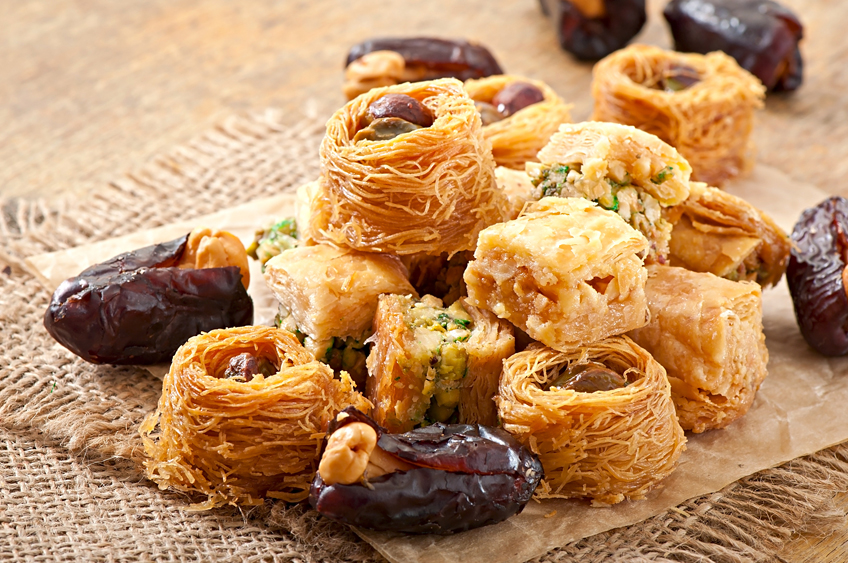
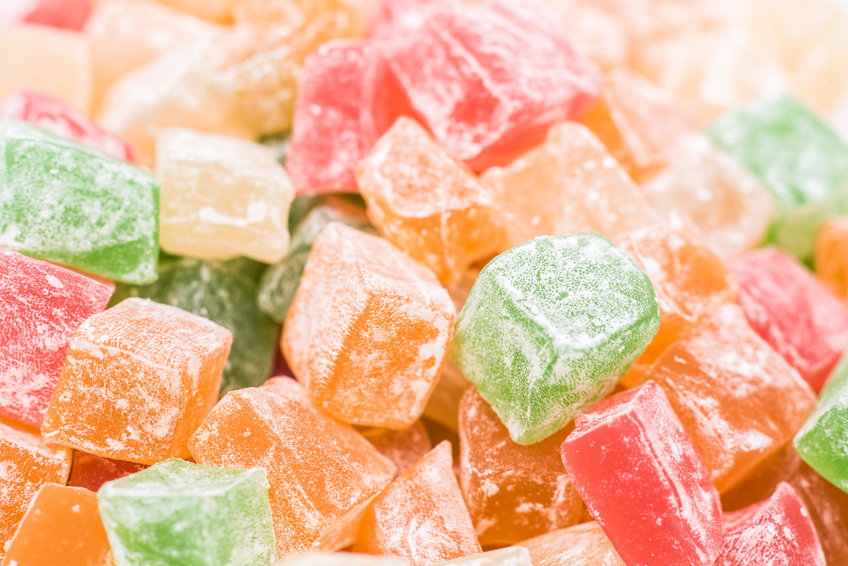
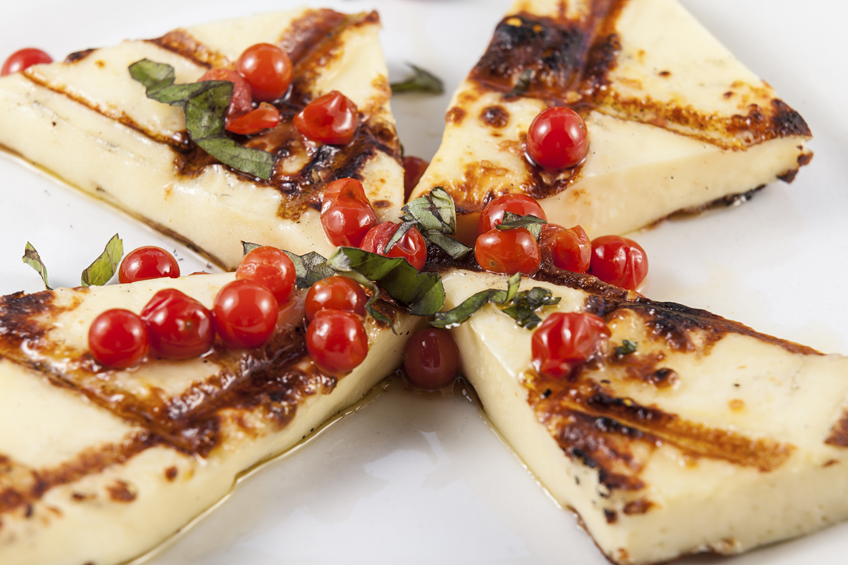
Silver Jewelry: A Timeless Souvenir from Cyprus
For those looking to take home something more lasting than food or drink, silver jewelry from Cyprus is an excellent choice. One of the best places to find authentic handcrafted silver is the picturesque mountain village of Lefkara, located between Limassol and Larnaca.
For over 500 years, the artisans of Lefkara have been mastering the art of silver craftsmanship and embroidery. Unique bracelets, necklaces, and earrings made with intricate filigree silver—often coated with white gold to prevent tarnishing—are sold throughout the village. These delicate pieces are meticulously crafted by local silversmiths who weave thin silver wire into stunning designs.
If you're looking for a refined and elegant gift, consider decorative items such as jewelry boxes, vases, ornamental dishes, and intricate figurines, all adorned with Cyprus’s signature filigree silverwork.
Traditional lacework and embroidery
Lefkara is also renowned for its exquisite embroidery, known as "lefkaritika." This traditional craft has been passed down through generations, with groups of women sitting in the village streets, carefully stitching their intricate designs. Lefkara lace, featuring complex geometric patterns that appear identical on both sides, is recognized as part of UNESCO’s Intangible Cultural Heritage.
Tourists can purchase authentic Lefkara embroidery in numerous local shops, where artisans continue to create handmade pieces using age-old techniques.
Another village famous for its lacework is Omodos, located near Limassol. The local embroidery, created using the "knot-to-knot" technique, has roots dating back to the early Byzantine era. Every lace piece is handmade, and the craft secrets are carefully preserved within the village. Visitors can explore a small museum in Omodos dedicated to this beautiful tradition.
Glass Art: A Unique Cypriot Keepsake
Glass, ceramics, and bronze artifacts make for meaningful souvenirs from Cyprus. These handcrafted items are widely available in gift shops, artisan boutiques, and folk art stores throughout the island.
One of the most iconic glass souvenirs from Cyprus is the glass donkey figurine, a charming representation of the island's cultural heritage. Whether you're looking for decorative homeware or artistic keepsakes, Cyprus offers a variety of beautifully crafted glassware to remind you of your travels.
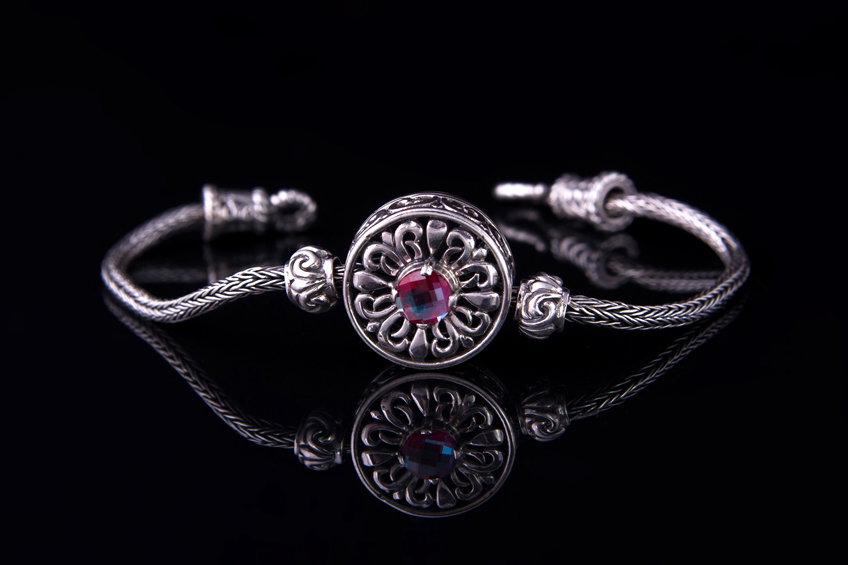
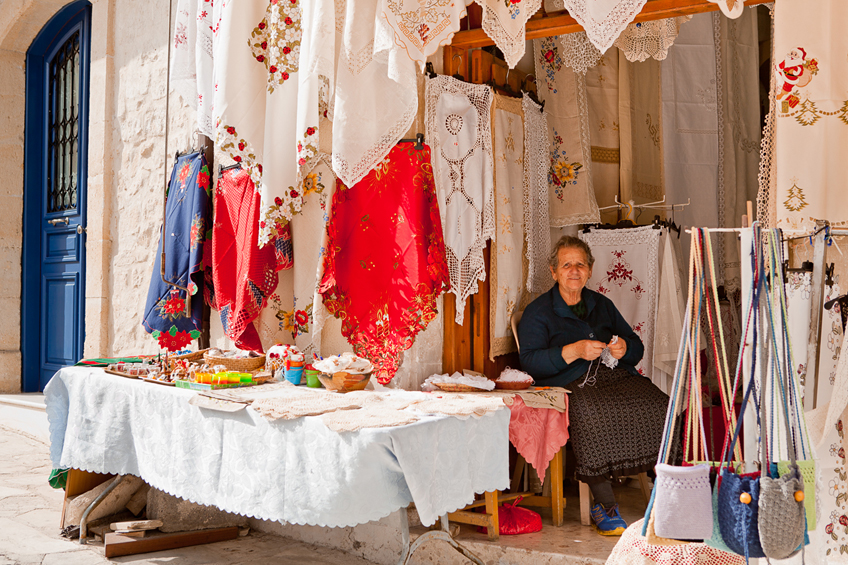
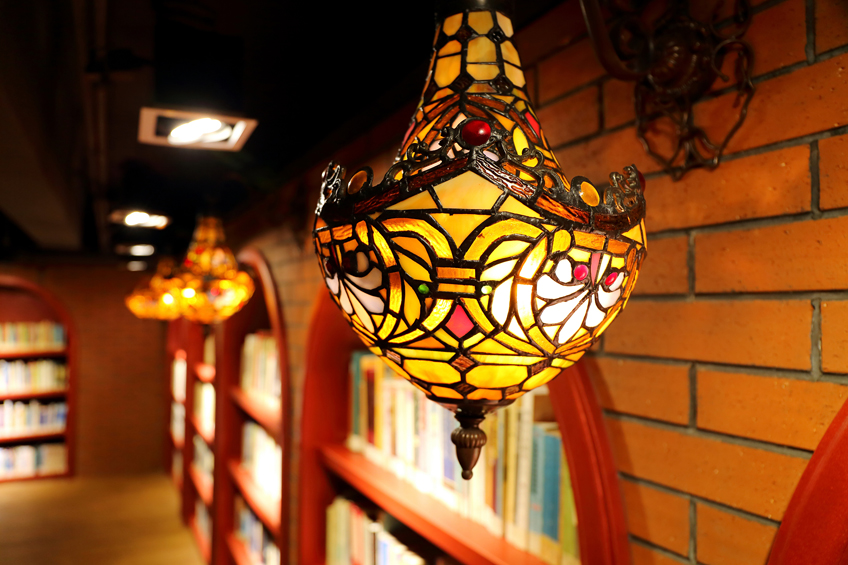
Natural cosmetics
Local natural cosmetics from Cyprus make for a thoughtful and practical souvenir that won’t end up forgotten on a shelf. These products often include ingredients such as orange and lemon peel, honey, rose water, and—most notably—olive oil, known for its nourishing properties.
Visitors to the Rose Factory in Agros can witness firsthand how Cypriots produce organic cosmetics from rose petals. After a guided tour of the factory, guests can purchase handmade soaps, creams, shower gels, perfumes, and body lotions infused with the delicate fragrance of locally grown roses.
Natural cosmetics based on olive oil are also widely available in specialty stores. However, due to their organic composition, these products often have a relatively short shelf life—sometimes as little as six months—so checking the expiration date on the packaging is always recommended.
To preserve their beneficial properties, natural cosmetics should be stored in a refrigerator.
Icons and other religious items
For centuries, pilgrims from around the world have journeyed to Cyprus, a land steeped in spiritual heritage and renowned for its magnificent Orthodox churches and historic monasteries.
Religious souvenirs such as printed and handmade icons, hanging lamps (lampadas), censers (thuribles), candleholders, crosses, and other devotional items are available in church shops throughout the island. These keepsakes not only serve as reminders of a journey to Cyprus but also reflect the island’s deep-rooted Orthodox traditions.
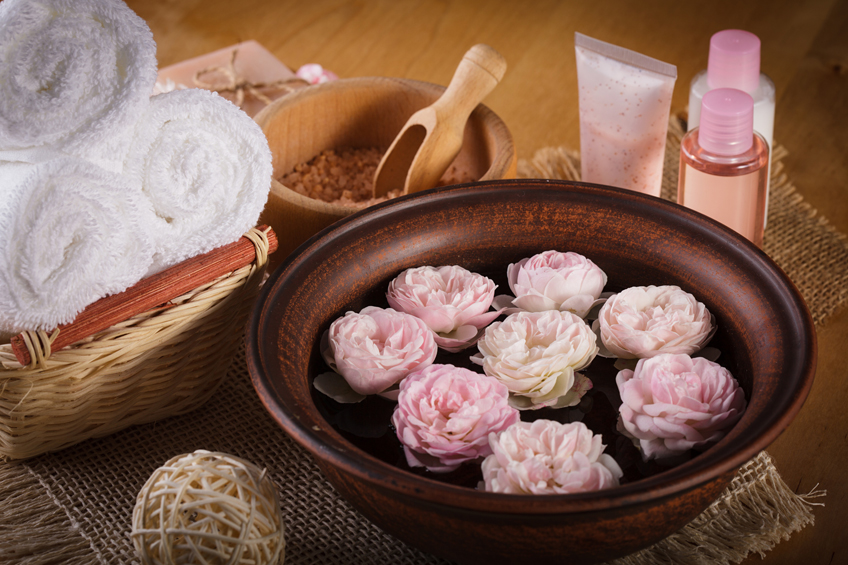
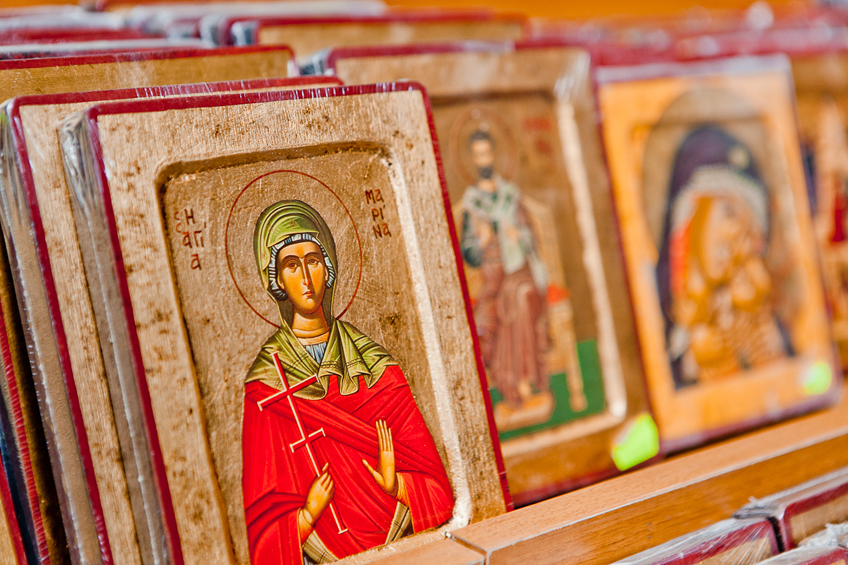
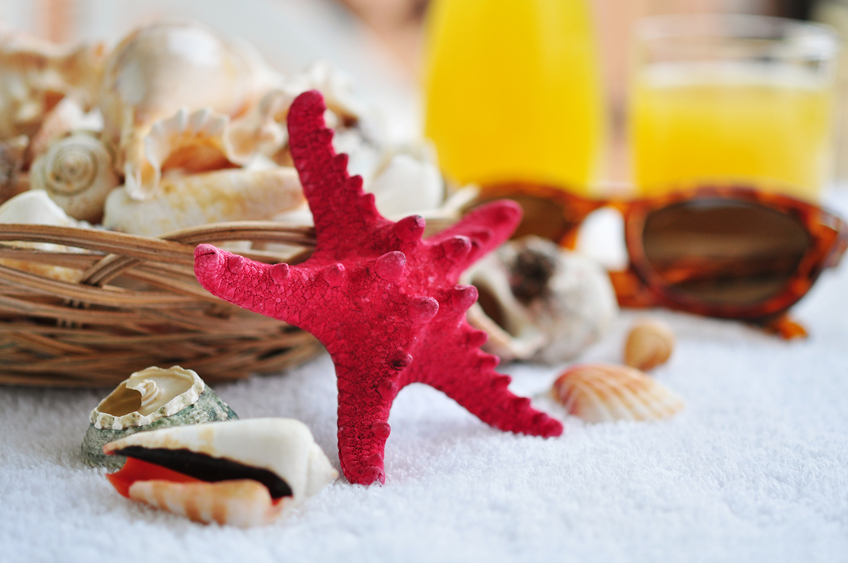
Conclusion: The Best Souvenirs from Cyprus
Whether it’s handcrafted jewelry, aromatic olive oil, fine embroidery, or delicious local delicacies, Cyprus offers a wealth of unique souvenirs that capture the essence of the island. Traditional products such as carob sweets, Commandaria wine, halloumi cheese, and Lefkara lace embody the island’s rich history and culture. For those seeking meaningful keepsakes, religious icons and natural cosmetics provide both beauty and spiritual significance.
No matter which souvenir you choose, each one tells a story of Cyprus—its traditions, craftsmanship, and Mediterranean charm. To find authentic gifts, visit local markets, artisan villages, and specialty shops that showcase the island’s best offerings. Bringing home a piece of Cyprus ensures that the memories of its sun-soaked landscapes and warm hospitality will stay with you long after your journey ends.

